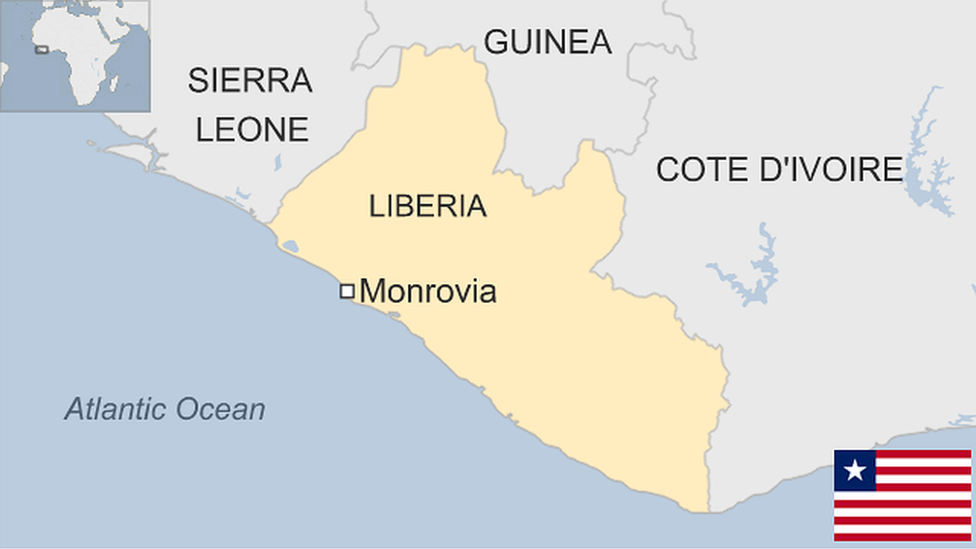Liberia presidential vote halted by country's Supreme Court
- Published
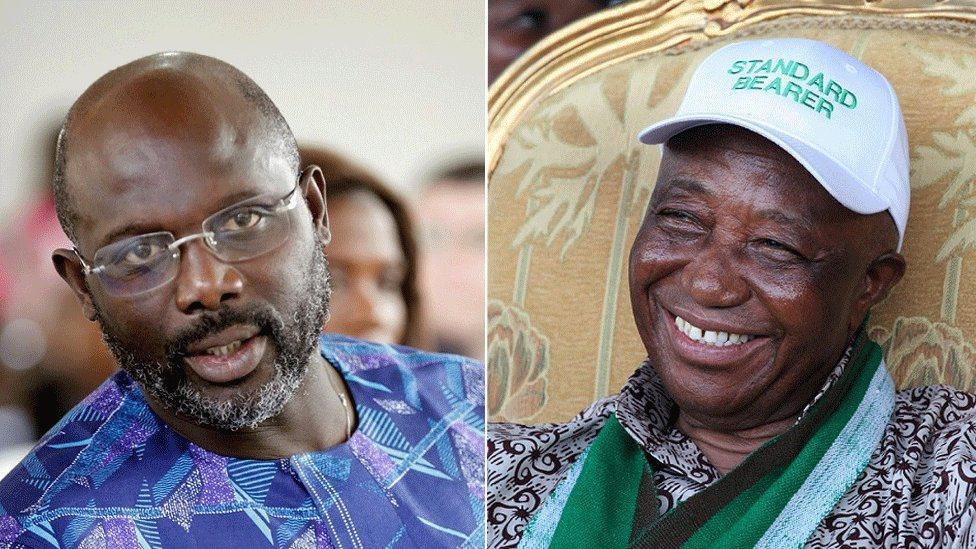
Former football star George Weah (left) and Vice-President Joseph Boakai are due to face each other in the second round
Liberia's Supreme Court has ordered preparations for Tuesday's presidential run-off to be halted amid allegations of fraud in the first round.
Ex-football star George Weah and Vice-President Joseph Boakai are due to go head-to-head in the 7 November vote.
But the Liberty Party's Charles Brumskine, who came third in the first round, has challenged the result.
Last month's election was the country's first independently run vote following the end of civil war in 2003.
Following the announcement, riot police were deployed to guard the court and electoral commission.
Later, a delegation arrived in the capital, among them the heads of the regional grouping Ecowas, and the Africa Union. They are meeting the heads of all the political parties.
Who does the president support?
Mr Brumskine and the Liberty Party said the first round was "characterised by massive systematic irregularities and fraud", including polling stations opening late and therefore preventing people from voting.
The election is to be postponed until his accusations are properly investigated, the court says.
But even if his case is thrown out, observers say it is likely to delay next week's vote as the commission will have lost valuable preparation time.
The Liberty Party is not alone in its allegations. The accusation of irregularities is backed by two other political parties - including Mr Boakai's Unity Party, which on Sunday alleged that its own president had interfered in the process.
In a statement, it said Ellen Johnson Sirleaf, Africa's first female elected president and a winner of the Nobel Peace Prize, had attempted to influence the outcome of the poll.
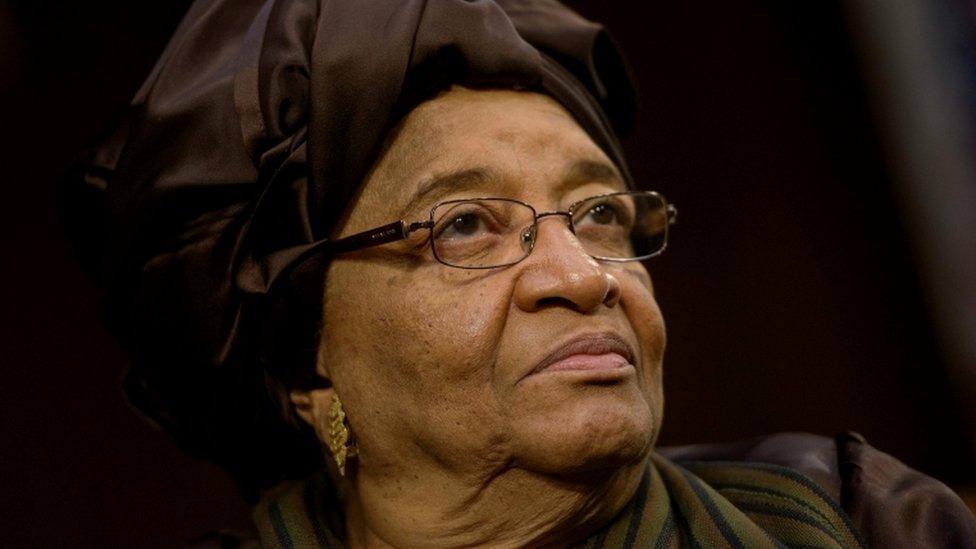
Ellen Johnson Sirleaf is accused of not supporting her deputy's presidential bid
Relations between Mrs Sirleaf and her deputy are not warm, with some ruling party officials saying the vice-president was not her choice to succeed her, the BBC's Jonathan Paye-Layleh reports from the capital Monrovia.
Mrs Sirleaf, 79, has however said more than twice that she supports Mr Boakai, who won 28.8% of the vote compared to Mr Weah's 38.4% in the first round.
Mr Weah's Congress for Democratic Change (CDC) responded to the accusations by noting it was "sad for a ruling party that has been in power for 12 years [to] be crying".
Mrs Sirleaf, meanwhile, has urged those taking part in the election to ensure the process "remains peaceful" so it can be completed successfully.
International observers, including the European Union, had not raised major concerns about the first round of voting, although some irregularities were observed, AFP news agency reports.
The court has instructed the Liberty Party and the electoral commission to present their cases by Thursday.
Election commission spokesman Henry Flomo told the BBC it would abide by any ruling the Supreme Court made.
Related topics
- Published6 October 2017

- Published10 February 2017
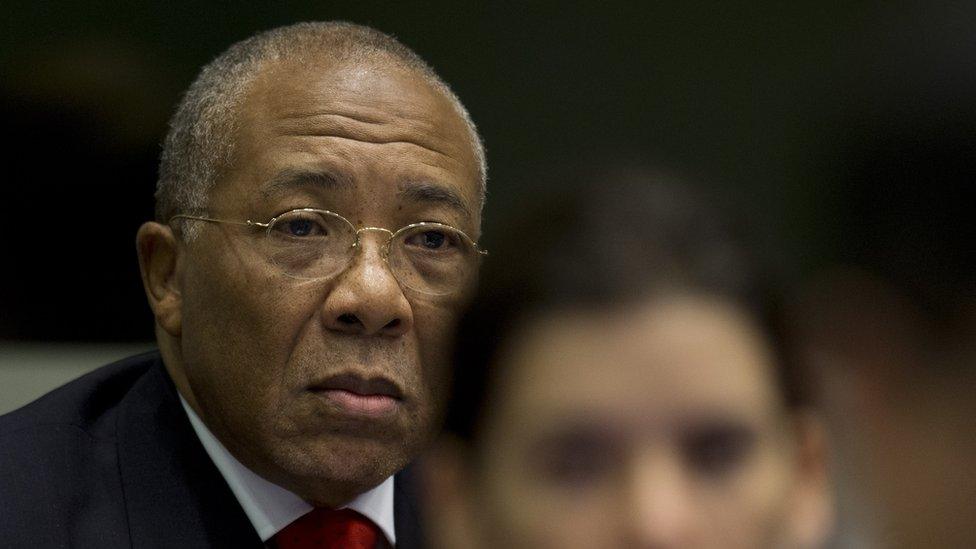
- Published25 March 2015
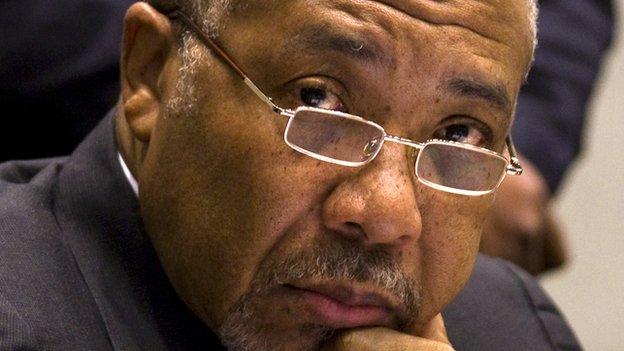
- Published26 September 2013
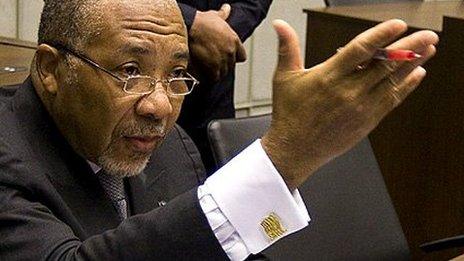
- Published13 February 2024
